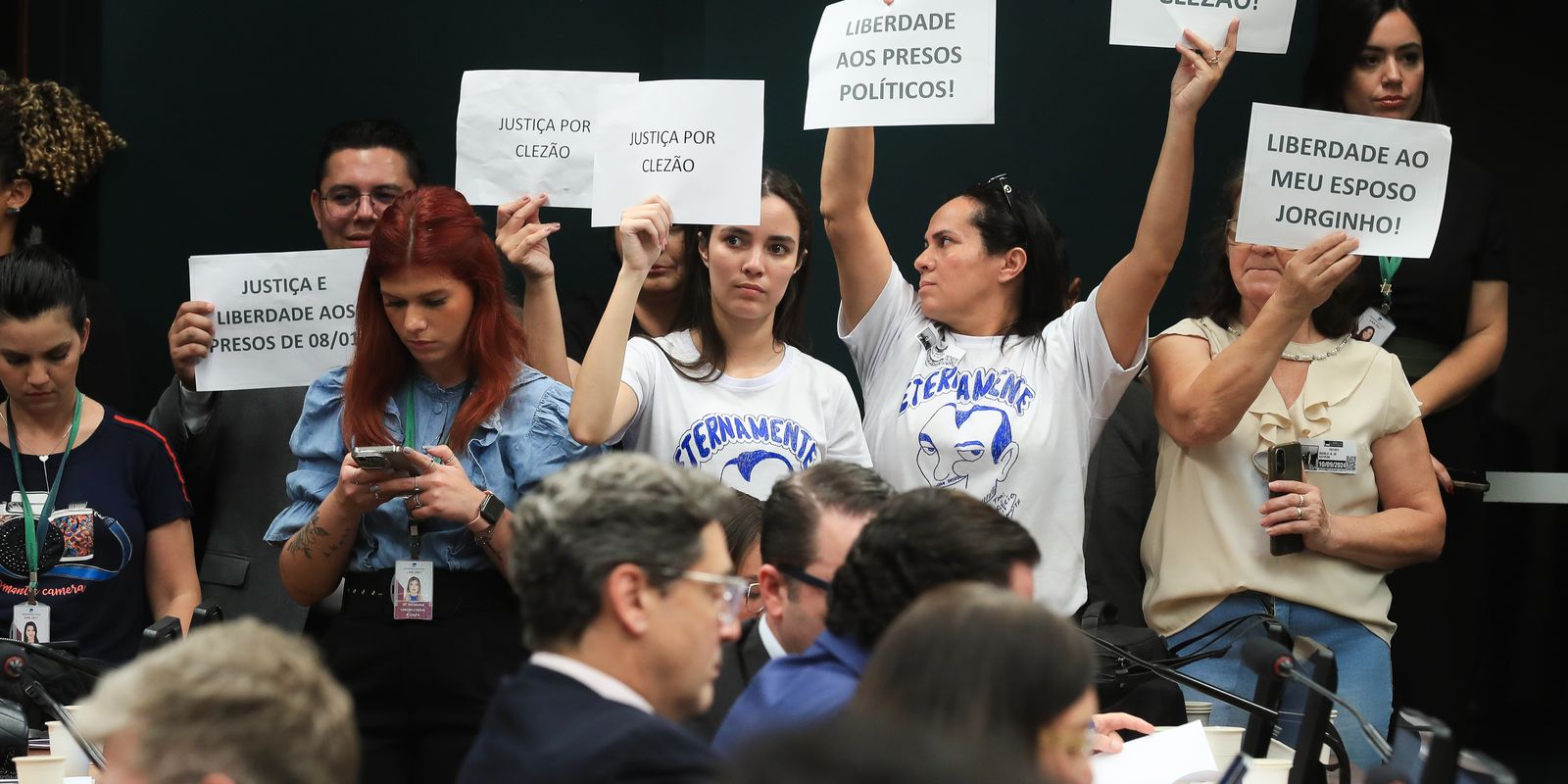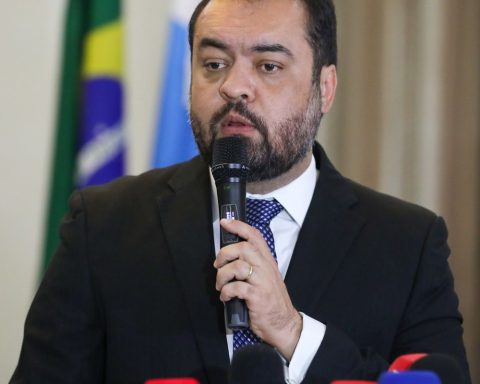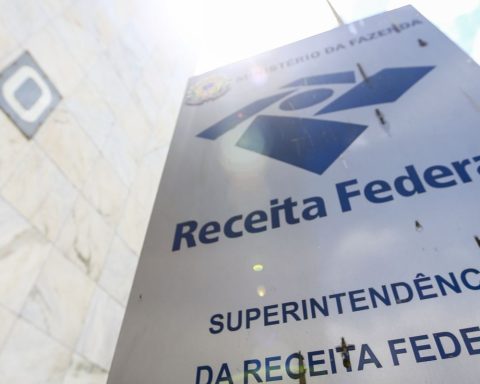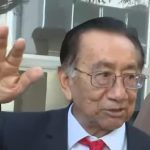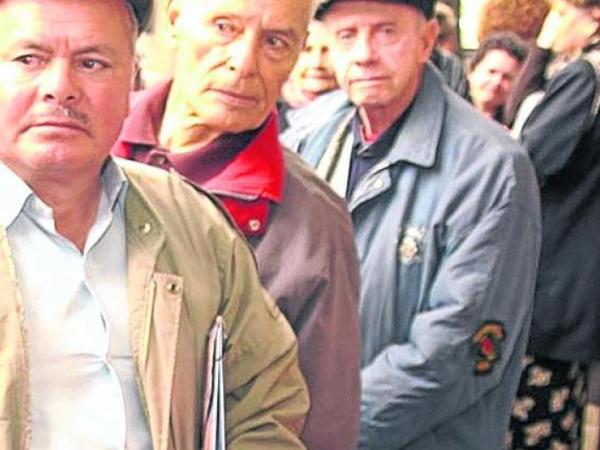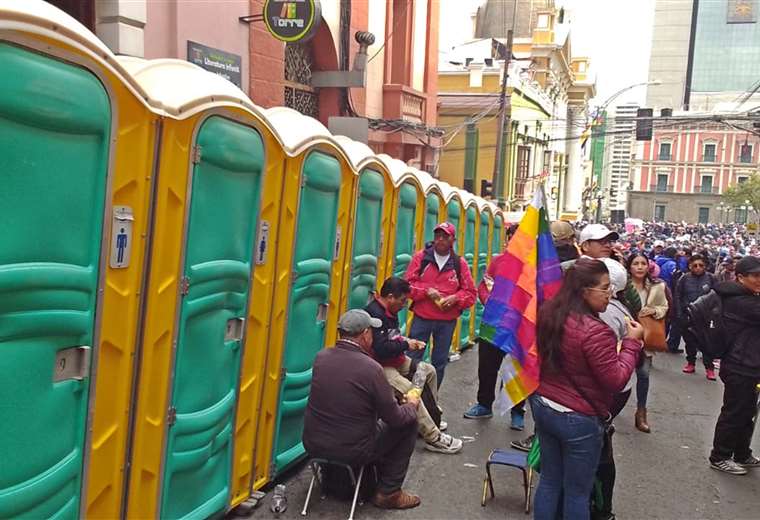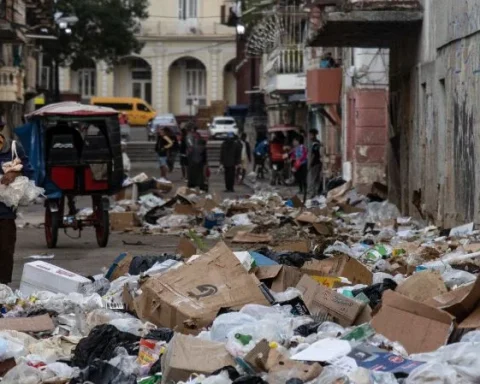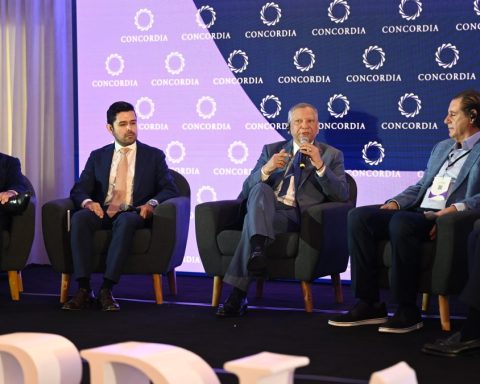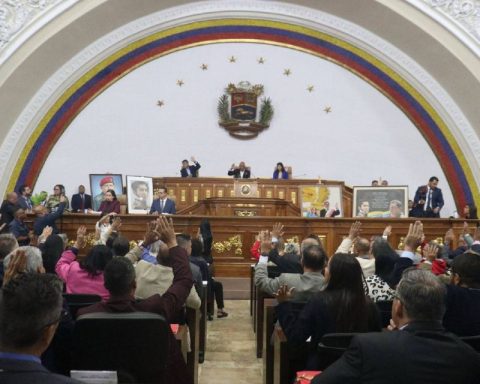The bill (PL) that grants amnesty to those convicted in the coup acts of January 8, 2023 was not included in the voting agenda of the Constitution and Justice Committee (CCJ) this Wednesday (11), as promised by the president of the CCJ, federal deputy Caroline de Toni (PL/SC).
Yesterday, the analysis of the project was cancelled because the plenary session of the Chamber had begun. The rules of the House prohibit committees from deliberating while there is a plenary session. The suspension of the CCJ outraged the members. deputies in favor of amnesty.
As the agenda for this Wednesday (11) was already closed, the strategy was to include the amnesty bill as an extra-agenda item. However, to do so, it would be necessary to have the vote of the absolute majority of the committee, which did not occur.
“Unfortunately, today, we are seeing that the amnesty is being used for political bargaining,” said the president of the CCJ, Caroline de Toni, adding that the agenda should return to the Commission in October.
The rapporteur of the matter, Congressman Rodrigo Valadares (União/SE), also expressed his regret. “Since yesterday, we have seen a maneuver by the government, by the left, a maneuver by several people. We are suffering all kinds of obstruction and retaliation,” he complained.
Deputies in favor of the amnesty bill, including the rapporteur, have conditioned their support for any candidate for the Presidency of the Chamber, in an election scheduled for 2025, on their commitment to the amnesty bill.
On January 8, 2023, supporters of former President Jair Bolsonaro invaded the headquarters of the Three Powers in Brasília, calling for a military coup in Brazil. People involved in the protests, financing or organizing the acts have been convicted by the Supreme Federal Court (STF) for, among other crimes, attempted coup d’état.
Valadares’ opinion argues that the convictions are unfair, there was no coup attempt on January 8 “due to the lack of leadership and the absence of military support” and that those people “did not know how to express their desire at that time”.
Federal deputy Túlio Gadêlha (Rede/PE) argued that it was indeed an attempted coup and that those people only left the headquarters of the Three Powers due to the force of security agents.
“We can tell whether or not there is an attempted coup based on the perpetrator’s intentions. On that fateful day, there were banners calling for military intervention. There were banners calling for the resignation of the Supreme Court justices. People invaded Congress with the intention of taking power. If the assassin doesn’t have the strength to pull the trigger, he still attempted a crime,” he argued.
According to article 1 of the amnesty bill (2,858/2022), “all those who participated in demonstrations with political and/or electoral motivations, or supported them, by any means, including contributions, donations, logistical support or provision of services and publications on social media and platforms, between January 8, 2023 and the date of entry into force of this Law, are amnestied”.
Supreme
With the postponement of the bill that provides amnesty for those involved in January 8, the CCJ began to discuss the Proposed Amendment to the Constitution (PEC) 8, which limits the monocratic decisions of the ministers of the Federal Supreme Court (STF).
An agreement between the government and the opposition established that the discussion will end this Wednesday, with the vote on PEC 8 being postponed to a future session.
The PEC analyzed prohibits this type of decision from suspending the effectiveness of a law or acts of the presidents of the Executive and Legislative branches and is part of a package of four projects that limit the action of the STF and began to be processed in the CCJ in recent weeks.
